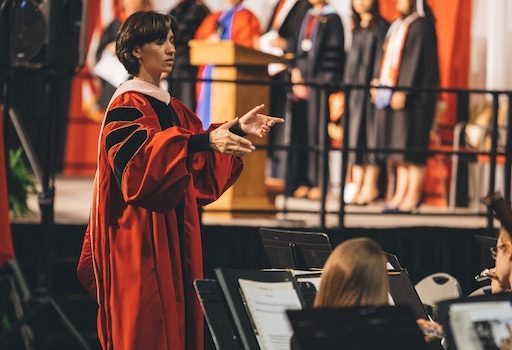 Today, children of all ages experience rigorous career preparation as part of their education. School systems strive to implement mandated standards to help students excel in standardized testing and gain necessary skills for future job opportunities.
Today, children of all ages experience rigorous career preparation as part of their education. School systems strive to implement mandated standards to help students excel in standardized testing and gain necessary skills for future job opportunities.
In this worthwhile pursuit, many creative school programs such as art and music are deemed unnecessary and cut from the curriculum.
What many schools do not realize, however, is that programs such as music education can have major positive impacts on growth and development.
In fact, these six benefits of music education not only show how music can benefit children now, but how it goes hand-in-hand with their preparation for future endeavors.
Enhanced language capabilities
Would you like your child to have larger vocabulary and enhanced reading comprehension skills? Studies show consistent music education improves both areas. How does it work?
Emerging evidence suggests the area of the brain controlling both musical ability and language comprehension are more related than previously thought. Music education requires students to recognize and repeat pitch, tone or enunciation of words.
Especially in young children, music directly benefits the ability to learn words, speak them correctly, and process the many new sounds they hear from others.
Improved memory
Music education involves a high level of memorization. Students must be able to read music by sight, play the proper notes on their instrument or recall lyrics. This process benefits the overall memory center of the brain.
In one study, musicians outperformed non-musicians in auditory, visual, and memory tests.
Music is also easily stored in our memory. Have you ever had a song stuck in your head? You can use music to help children remember things. Examples include using common tunes to memorize facts, playing meditative music during study time, and using music resources when presenting materials.
Strengthened hand-eye coordination
Playing a musical instrument has long been known to enhance dexterity and hand-eye coordination.
When playing an instrument, a musician must be able to create the correct notes through the proper hand motions, whether it be hitting keys, closing valves or using another apparatus to produce sound. In addition, the musician is also required to read the sheet music and follow the conductor.
This opportunity to grow motor skills is especially significant in younger children. Even a basic introduction to an instrument, such as a hitting a triangle or learning a song on a recorder, can be beneficial.
Powerful study habits
As children grow and are exposed to more rigorous courses of study, time spent reviewing and retaining is essential to success. More and more time in the classroom is spent on introducing new subjects and ideas, requiring students to work at home to ensure they have grasped onto the necessary information.
When children are exposed to proper music education, they learn powerful study habits. Mastering their specific musical craft takes a concerted effort, consistent practice and patience. These disciplined habits translate into other areas of study.
Teamwork
Music is often thought of as a way to foster individual expression. While it definitely is that, music can also teach teamwork. No place is this more evident or powerful than in schools.
Students work together to create a cohesive, technically correct performance. Together, they form a community of like-minded individuals who can help each other reach goals. Many students find a sense of belonging in school music programs.
Mental processing & problem-solving heightened
In the end, one of the most useful benefits of music education is the increased ability to process situations and find solutions mentally. Those with musical training have been found to have higher levels of grey matter volume in their brains, which are directly tied to auditory processing and comprehension.
Surprisingly, one of the areas of life this is most important for is forming relationships. Musicians learn to listen to others, sense emotion,and react with greater depth and understanding.
Music education for kids
Music education is an important aspect of providing children with a well-rounded education. When allowed to work in harmony with other subjects and areas of study, music helps children grow in self-esteem, build essential skills and prepare for bright futures.
Jenny Silverstone is the writer at Studyclerk and the primary author of Mom Loves Best, a research-driven parenting blog that covers important topics such as education, child safety and healthy childhood development milestones.
Related Posts:
[ssba]

Agreed, all six benefits matter to enhance level of learning.
Interesting and useful article to read. There are several other recommended articles that also discuss similar things on the following website http://ners.unair.ac.id/site/index.php/news-fkp-unair/30-lihat/1550-manfaat-musik-untuk-kesehatan-ternyata-tidak-sedikit
The benefits of musical education for kids include: It helps students improve there memorization because students are recommended to read music by sight, play the proper notes and sing the right lyrics. The second reason it is good for students is it helps kids with there hand eye coordination. Playing an instrument is very hard because it takes a lot of practicing and hard work to become a good musician and it requires students to read the sheet of music and follow the music conductor. These are my reasons why I think that all schools should teach music.
I love that you talked about how our hand-eye coordination could be enhanced by watching and understanding performance arts theaters. My companion mentioned a few nights ago that he wanted us to attend a performing arts musical theater to experience outstanding educational programs for our children. He asked if I had opinions on the best option to gather details about their programs. I’m thankful for this helpful article.
Thanks to you. Those tips are very helpful for me to raise my child in a good way.